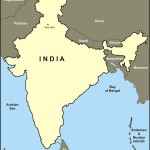 This article sums up my observations based on a study of a detailed article titled “Getting Bin Laden:What happened that night in Abbottabad” written by Nicholas Schmidle and published by “The New Yorker” in its issue dated August 2, 2011 .
This article sums up my observations based on a study of a detailed article titled “Getting Bin Laden:What happened that night in Abbottabad” written by Nicholas Schmidle and published by “The New Yorker” in its issue dated August 2, 2011 .
The article appears to be largely based on briefings by the Naval Special Warfare Development Group (DEVGRU). It is apparent that the reporter hasn’t had the benefit of detailed briefings by the Central Intelligence Agency (CIA) and other agencies of the US Intelligence Community, who played a role in the conceptualisation and successful execution of the operation. There are some references to the role of the CIA, but very little to that of the National Security Agency (NSA) and others responsible for the collection of technical intelligence (TECHINT).Nor does it focus on the role of the Director,National Intelligence (DNI) and his set-up, which came into being following the enquiry into the 9/11 terrorist strikes in the US Homeland.
The main political implication of Operation GERONIMO was the likely fall-out of the success or failure of the operation on the USAs relations with Pakistan and on the future of the US military operations in the Af-Pak region.
The post of DNI and his set-up were created to improve co-ordination among various agencies of the US Intelligence Community. Previously, the Director of the CIA used to wear a second hat as the Director, Central Intelligence, and in that capacity co-ordinate the work of the agencies of the Community. This arrangement had been found unsatisfactory for many years even before 9/11 and had led to demands for divesting the Director of the CIA of the responsibility for Intelligence Community co-ordination and entrusting it to a Director, National Intelligence, working under the President. This was done following the enquiry by the National Commission appointed by the then President George Bush to enquire into the 9/11 terrorist strikes.
A perusal of the article shows that while the DNI created by Mr.Bush continues to function as the de jure co-ordinator, de facto the Director of the CIA continues to co-ordinate all sensitive overseas operations of the Intelligence Community. While the spectacular Operation GERONIMO was planned and carried out by DEVGRU and the Navy SEALS, the operational leadership was provided by Mr.Leon Panetta, the Director of the CIA. Thus, despite the changes introduced by Mr.Bush, under President Barack Obama, the CIA continues to retain its operational leadership in respect of all clandestine and covert operations abroad having possible political implications.
The main political implication of Operation GERONIMO was the likely fall-out of the success or failure of the operation on the USA’s relations with Pakistan and on the future of the US military operations in the Af-Pak region. For co-ordinating and providing leadership to it, Mr.Obama chose to rely on the CIA, which would have had a better appreciation of the political implications.
The Israeli raid in the Entebbe airport in Ugands in the 1970s to rescue the passengers of a hijacked Air France plane was a typical commando action. Secrecy and deniability were maintained till the operation was over.
There are two kinds of clandestine operations undertaken abroad— operations by specially-trained commandoes of the Armed Forces and operations by intelligence professionals specially trained in covert action techniques. A commando action differs from a covert action in two respects. Firstly, for a commando action, you use your own special forces.For a covert action, you use specially-trained volunteers of other countries and do not use your own nationals. Secondly, for a commando action, you maintain the deniability till the operation has been completed. After the operation is over—with or without success—- you do not deny your parentage of it. In a covert action, you maintain the deniability for ever.
The Israeli raid in the Entebbe airport in Ugands in the 1970s to rescue the passengers of a hijacked Air France plane was a typical commando action. Secrecy and deniability were maintained till the operation was over. Thereafter, Israel admitted that it had carried out the raid. The Israeli raid on the PLO in Tunisia in the 1980s was typical covert action.Till today, Israel has not admitted that it carried out the raid in Tunisia.
In the US, the responsibility for commando action is that of the appropriate agencies of the Pentagon such as the Special Operations Command and for covert action it is that of the CIA. OP GERONIMO had a mix of the covert and commando components. The covert component related to measures taken for the collection of intelligence about the courier of Osama bin Laden, identifying the hide-out of OBL and collecting intelligence about its inmates in order to establish that OBL was most probably there. The commando component related to the planning and execution of the raid by the Navy SEALS acting on the basis of the intelligence collected by the CIA and other agencies through their covert operations.




